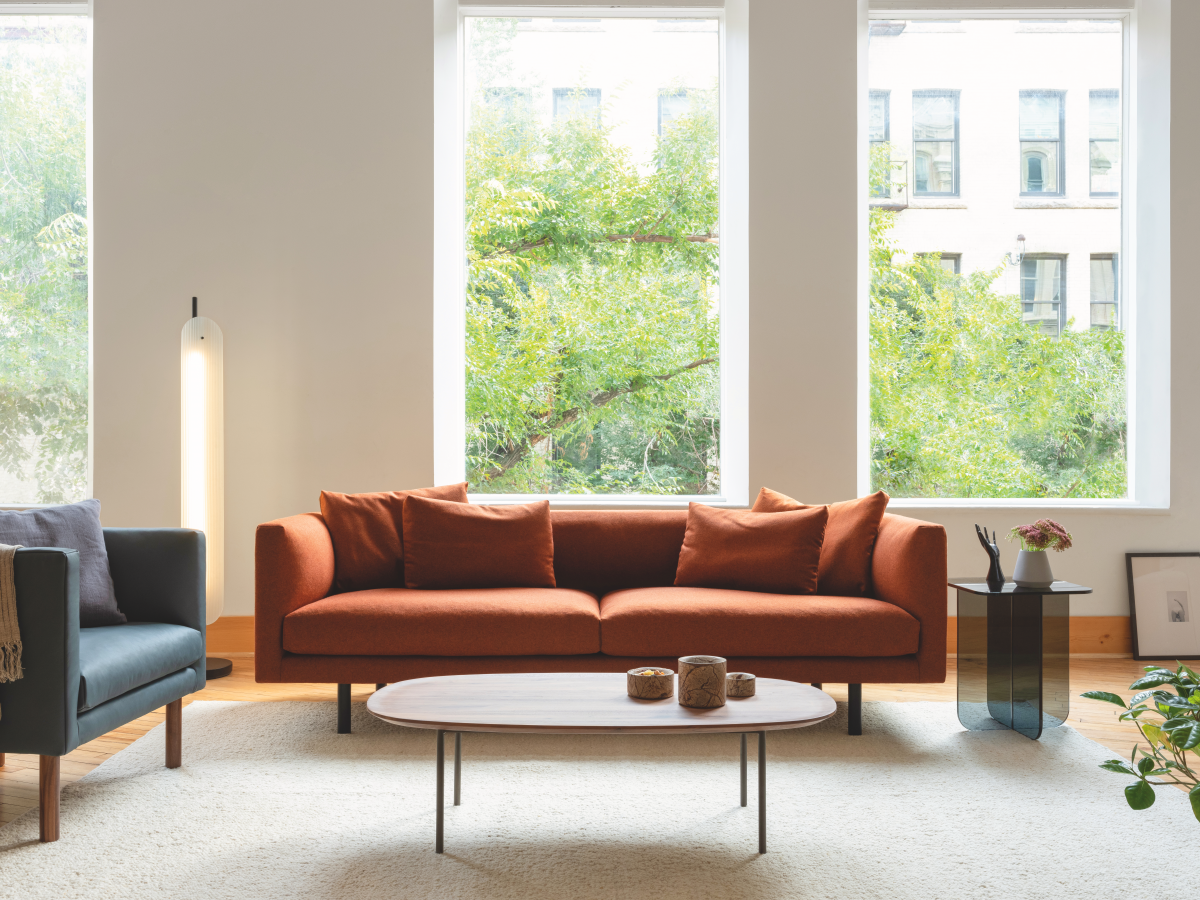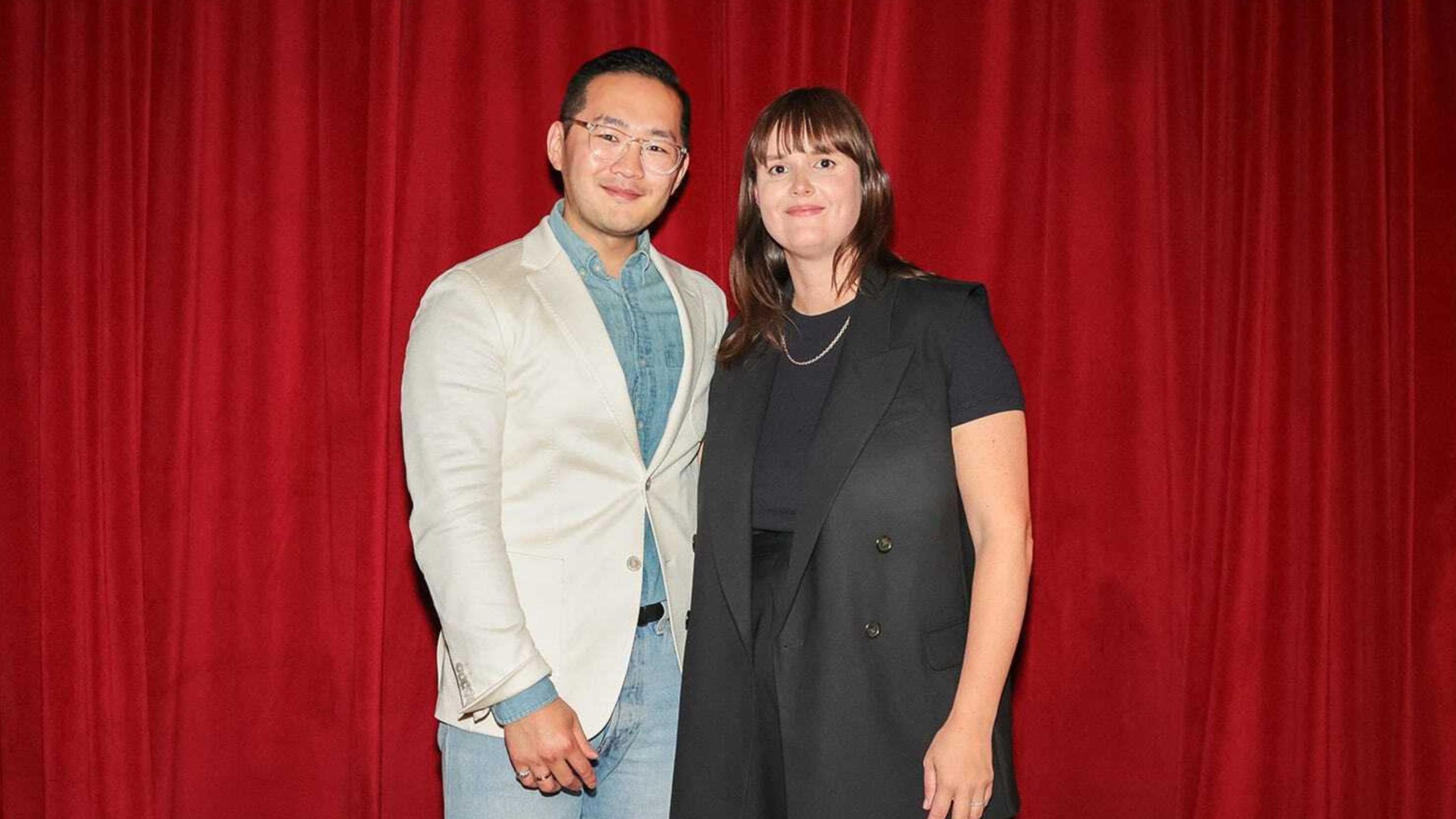If you’ve recently embarked on an IKEA home renovation journey or, heck, just tried to purchase some new furniture for your pad, it’s possible that you’ve become all too familiar with their inventory shortages and supply-chain issues that demand months of waiting for single items. Fortunately, Edmonton-based Andrew Hibbs has built the perfect solution to the home upgrade conundrum.
Founded in 2017, it is Hibbs’ enterprising vision and foresight that saw the creation of his company, Kitch. Recognizing the need for premium quality materials and a diversity of design options that would be compatible with IKEA kitchen systems, clients are able to build the kitchens of their dreams without having a custom millwork-level budget (or waiting months for a simple item to be restocked.) The big picture? To empower home renovators to build their own sanctuaries via convenience, accessibility, choice, and quality materials.
In our Q&A, the Kitch founder shares his entrepreneurial experience, lessons learned, and advice for people embarking on their own home renovation journeys.
What’s your elevator pitch to the world as a business?
Andrew Hibbs: Kitch is a component-based cabinet system that gives flexibility and choice to the DIY end consumer. There’s items in the world of cabinetry that are lacking and very expensive. We want it to pair flexibility with quality and bring them together in a medium that can work with most spaces.
Great entrepreneurs arise when they recognize problems and embark on creating solutions to solve them. What’s the fundamental problem or issue that you’re looking to solve or alleviate?
Andrew Hibbs: It’s twofold. My first company was founded in 2006, which was a high-end millwork company. We did that for 12 years but it was one of those businesses that was started as a passion. Unfortunately, when you’re in high-end custom, you’re only working with 10 percent of the clientele that’s out there. So, what can get me into more clients’ homes? Well, there’s a mid-grade level, and then the only other option is IKEA. So I thought, how can I take quality products and put them in the hands of IKEA customers?
Essentially, IKEA doesn’t have choice, and we offer a huge amount of choice and quality in the custom world. I wanted to marry the two together and give people the tools to do budget conscious projects with higher quality finishes. That’s how Kitch spawned.
RELATED: Sundays Furniture Opens Its Showroom in Calgary
Has anyone else come up with this kind of concept in Canada?
Andrew Hibbs: In the millwork space, colleagues of mine or like-minded individuals spit on IKEA. It’s garbage, they don’t like it; it’s just that mentality, right? There’s that element of the trade professional saying IKEA is not well perceived.
At the end of the day, do you have a box and a drawer, and does it have good hardware and fastening system? IKEA checks the boxes. What matters, and where the money is, is the outside look; the inside shell is not a big deal. There’s 4,000 cabinet companies in Canada and they all make the same white melamine box. As long as we’re not over complicating our business and making it unattainable for people, then I think we’ve got to win.
Have you had any issues with using IKEA as a foundation to build the business off of?
Andrew Hibbs: Early on, I reached out and they actually responded to me through LinkedIn. They basically said that they don’t support third party companies that use their products, so I kind of took that [to mean] as long as we’re not saying anything bad about their brand and that we’re not affiliated with IKEA, [we’re ok.] We’ve just kept it simple and they haven’t said a word. In most of the locations in Canada, there’s staff that tell people to check out Kitch if they’re looking for different finishes.
Our sales have doubled every year for the last five years. We’re selling IKEA more boxes, if anything [laughs]. We’re just keeping it simple, flying under the radar, and doing what we do.
How has your business vision changed from day one to today?
Andrew Hibbs: Before the pandemic, we wanted to have a lot of choice of door styles and finishes for the IKEA customer. We ended up being a millwork business that built all the boxes and drawers, too. I didn’t want to be doing that side of the business anymore, I wanted to just stick to a product, like a door, a drawer, or front panel. Then the pandemic hit and we saw a need for a supplementary IKEA cabinet box. We developed one, which unfortunately wasn’t the same price, but fit a niche. Right away, we noticed that IKEA didn’t have this size or that size, and we kept on getting asked if we made them.
I think when people start with the IKEA model, they [can’t customize.] So they’ll go to a local kitchen company or cabinet shop and get it done for three times the price. Now, people can get most of these things from Kitch and not have to go to IKEA at all. There’s a big stigma around either custom mill workshops or kitchen companies because people are nervous to walk into them to start and the response time on just an inquiry can be a week and a half. Then they have to wait another two weeks to get a quote, four weeks to get the design done, and 16 weeks to get it produced. It takes too long. With us, you can order it today and five to six weeks later, it’s ready to ship. We’ve kept that consistency.
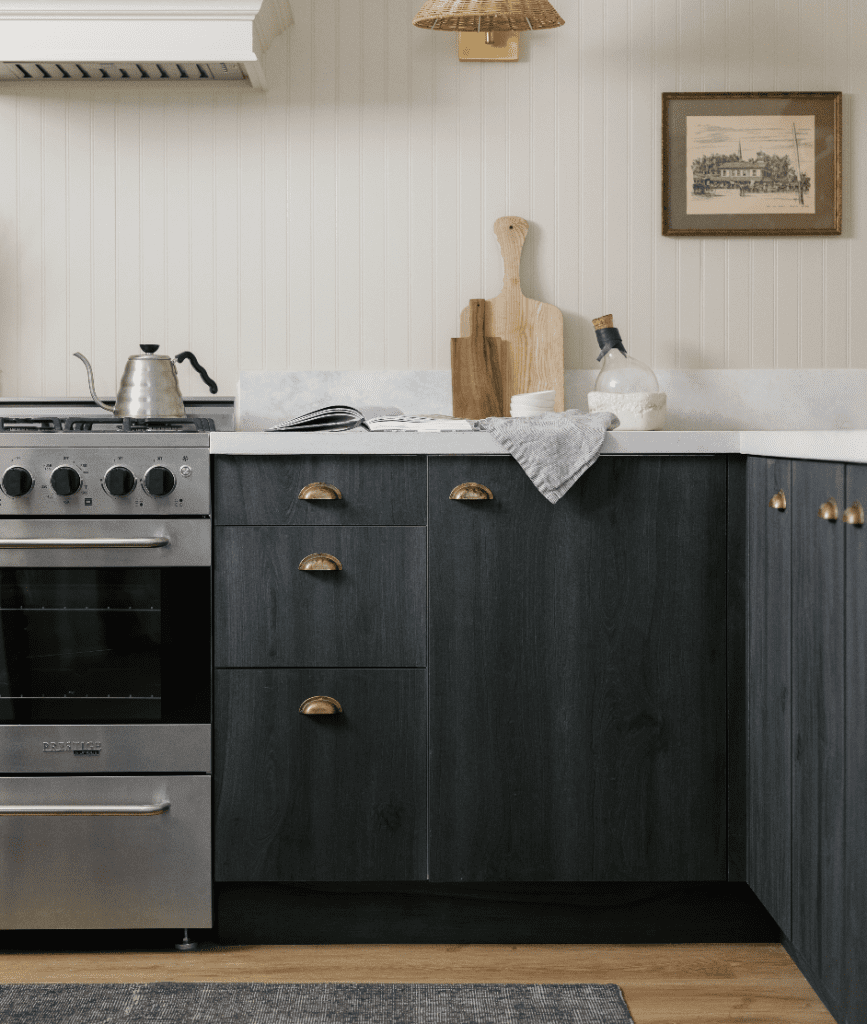

How did you notice people’s attitudes changing towards renovation and home projects during the pandemic?
Andrew Hibbs: The biggest thing is essentially being paired with an IKEA brand. It’s great when it’s great, but when they started losing stock after a while, people didn’t start their project ideas wanting to use IKEA. If you go on Reddit, there are chains and chains and chains of people saying, I can’t get this cabinet, I can’t get that. So, after a while people just chose not to use IKEA. Our sales this past fall were a lot less than they were the fall before, and it’s because we don’t have that IKEA piggyback to work off of, even though we’re offering a lot more now than we were a year ago, two years ago, three years ago.
They’re a behemoth, they’re huge. If you get even one percent of their kitchen business, you’re doing quite well. But that’s one of the biggest impacts. If people are fed up with supply chain issues and not even thinking of IKEA first, they may not find their way to us.
What advice do you have for people that are embarking on this kind of experience?
Andrew Hibbs: The biggest thing is having an open line of communication off the top. When you’re doing the largest investment in your home and everything is ordered online, this is important. An average order probably takes 12 to 15 emails back and forth from the time they start to the time it’s delivered. We make sure everything’s okay [online] but it takes the personal relationship out of it.
We want it to be as e-commerce as possible, but we realize there’s more of a relationship here than we originally thought there would be. There’s an emotional aspect. Forming a good, solid relationship at the beginning is key. You have to understand that people are people. We have some customers that can order $15,000 a week and never talk to us. Then we have people that order $1,800 orders and they need everything. They need phone calls, zoom calls, emails to confirm, etc. So my advice is be prepared in the interiors kitchen space to put in the effort to form good relationships and give your customers confidence of what they’re buying.
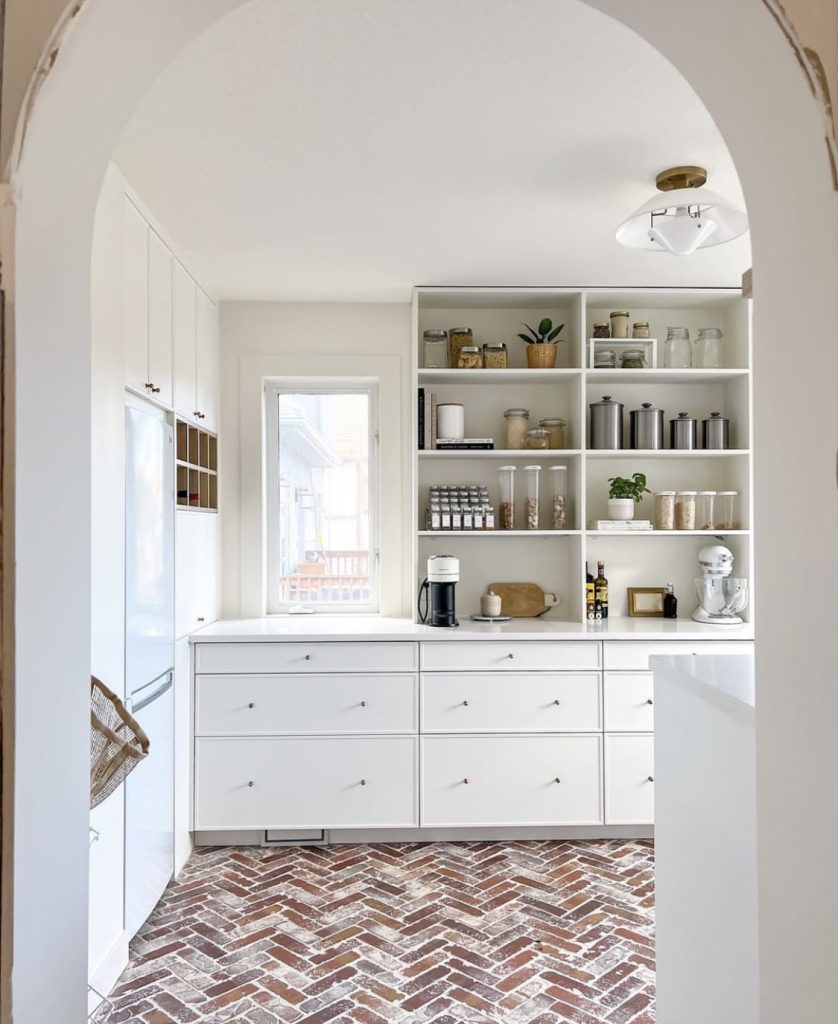

What is an area in your industry that could benefit from more education?
Andrew Hibbs: We’re going to start a marketing campaign next year that’s called #notcustom because I think people feel that everything is custom. We have to move away from this. We need to build back confidence and communicate to clients that it’s okay to not have custom. It’s going be a strain on resources for however long until people can understand. It’s not my life’s mission to make sure people can move away from custom, but there’s some smarts that could be implemented to alleviate the trades efforts and the suppliers.
What are some questions that you think all entrepreneurs and small business owners should be asking themselves before they build a company?
Andrew Hibbs: I think the biggest thing is understanding the vision of your business, which is your very long-term goal. What problems do you wanna solve? Then there are the fundamentals, like accounting, that you have to know if you want to make money and offer a fair product at a fair price. Also, are you flexible enough and do you know your ‘what ifs?’ While we didn’t foresee the pandemic and the world shutting down, we did ask ourselves, what if IKEA sends us a cease and desist letter? You can’t be prepared for everything, but you should have some contingency plans. What is your safety net? What is comfortable for you? Is it six months of revenue in the bank? What are your thresholds?
What do you think makes for a great brand experience?
Andrew Hibbs: I’ve had three different companies, three different brands, and I like simplicity behind a brand. It’s not about being a brand that offers too much. You don’t want to go down a rabbit hole and sell shoelaces as well as two-by-four lumber. We’re trying to create two paths now for clients. We have clients that want IKEA fronts for IKEA boxes, and we have clients that want the full Kitch experience, from design to the Kitch box offerings with more choice of finishes, and support while you’re installing. We’re trying to provide clarity.
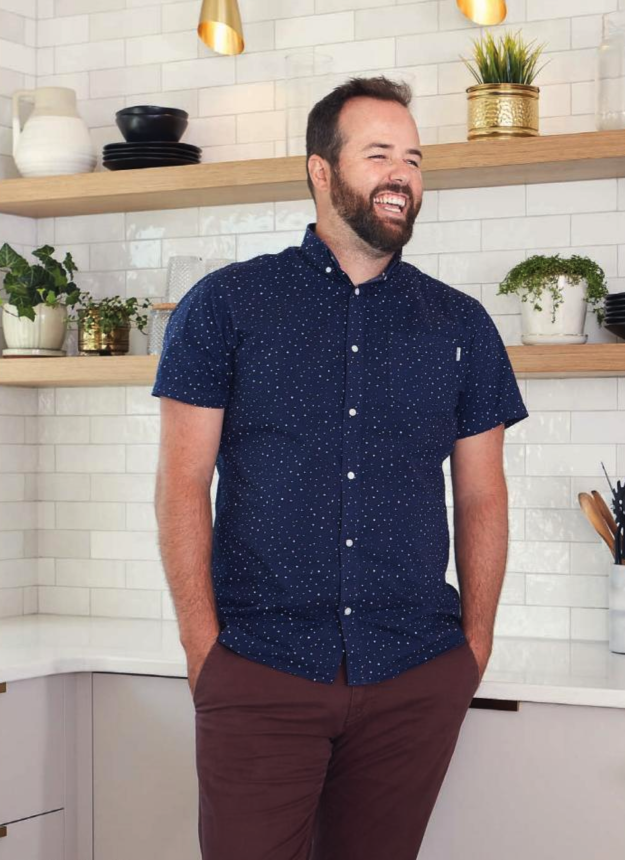

If you could go back to the first day of your business, knowing what you know now, what is the biggest piece of advice that you would give to yourself
Andrew Hibbs: Understand how you’re selling. In terms of the vision, ours was to build a product-based business and make it available to the masses. We needed an online sales tool so we looked at an e-commerce website and unfortunately in the cabinet space, and because things are so configurable, e-commerce five years ago wasn’t as tailorable as it was now. We would get quotes of up to $500,000. We have a portal that is actually kind of a B2B cabinet-based portal, which we’ve really tried to make it look and feel more e-commerce.
I would’ve focused on getting the software implemented sooner and really tried to just build that up so that as each client comes in, it would’ve been like, we’ve given you a tool to build your order and if you need assistance, we’re certainly here to help. The point is, we want you to feel comfortable and understand what you’re ordering. The prices are live and you can add, delete, and change the finish. Everything’s updated for you. It puts it in your hands.
What do you do for yourself that really helps you refocus and not get overwhelmed?
Andrew Hibbs: There are two avenues that I have. We go and visit a cabin that my mother-in-law owns during the long weekends. The other thing is, I just like to get out and laugh, make jokes, have fun, and golf. A good five hour round of golf with a couple of buddies where your face hurts from laughing so much—I’m an East coaster, so it’s all about socializing and making fun of yourself. Honestly, if I’m not laughing during the day, I’m not me. Stress to me doesn’t sit very long. If something happens in the morning, I’ll be able to figure it out by the afternoon and laughing about it in the evening because what else do you do? Never take it too seriously. Life is a journey.








